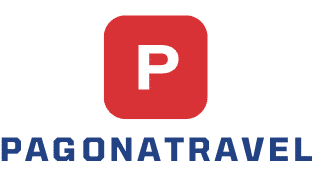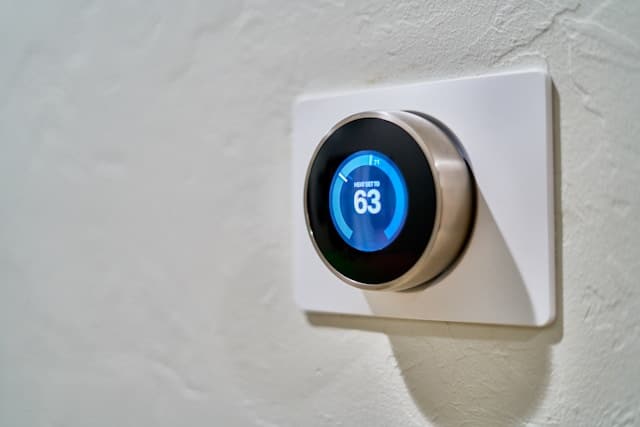Incorporating smart locks in rental properties is no longer a matter of luxury or convenience, but a necessity in today’s increasingly digital world. As hosts, you’ve likely heard about these high-tech security devices that are revolutionizing property management. But what exactly are smart locks, and how should you go about integrating them into your rental properties? Keep reading to discover the best practices for making your properties smarter and more secure.
Understanding Smart Lock Technology
Let’s start by understanding what smart locks are and how they work. In the simplest terms, a smart lock is a wifi or Bluetooth-enabled device that allows you to lock and unlock a door using your smartphone or other smart devices. Smart locks offer a keyless convenience, eliminating the hassle of copying, distributing, and keeping track of physical keys.
Also read : What Are the Challenges of Retrofitting Heritage Buildings for Improved Energy Efficiency?
These devices are not just a gimmick; they are a vital aspect of modern property security. They have a host of features that make property management easier and more efficient. With smart locks, you can grant access remotely, monitor who is coming and going, and even set specific access times for guests or maintenance staff.
Integrating Smart Locks in Your Rental Properties
Now that you understand what a smart lock is, it’s time to explore how you can integrate this technology into your rental properties. Here are some best practices to keep in mind.
Also to read : What Are the Emerging Trends in Luxury Real Estate in London Post-Brexit?
Choosing the Right Smart Lock
Just like any other piece of technology, not all smart locks are created equal. When selecting a smart lock for your property, consider factors such as compatibility with your existing door hardware, connectivity options, ease of installation, and user-friendliness.
Look for a lock that integrates seamlessly with property management software or platforms like Airbnb. Some smart locks even offer functions like auto-lock and unlock based on the guest’s proximity, enhancing the user experience further.
Setting Up the Smart Lock
Once you’ve chosen the perfect smart lock, the next step is setting it up. While most smart locks are designed for easy installation, you may want to consider hiring a professional if you’re not confident in your DIY skills. This will ensure that the lock is installed correctly and securely.
After installing the lock, make sure to test it thoroughly. Try locking and unlocking the door using all available methods. Check the remote access and ensure that all notifications are working correctly.
Managing Access
Smart locks offer a unique advantage in terms of access management. You can create unique access codes for each guest, allowing for secure and hassle-free check-in and check-out. It’s also possible to set specific access times, providing even more control over your property.
Remember to reset the access codes after each guest’s stay to maintain the security of your property. Some smart locks automate this process, saving you time and effort.
Educating Your Guests About Smart Locks
Regardless of how advanced your smart lock is, it won’t be effective unless your guests know how to use it. Therefore, educating your guests about the lock is an essential part of incorporating this technology into your rental properties.
Provide detailed instructions about how the lock works in your property’s welcome guide. You might also consider sending a how-to video to guests before their arrival. Make sure to let them know who to contact if they have any issues with the lock.
Maintaining Your Smart Locks
Like any other piece of technology, smart locks require regular maintenance to function correctly. This includes keeping the software up to date, regularly checking battery levels, and ensuring the physical components of the lock are in good condition.
Most smart locks will alert you when the battery is running low, but it’s still a good idea to check regularly. Also, consider providing instructions on how to replace the batteries in your welcome guide, just in case the batteries die during a guest’s stay.
Implementing smart locks in your rental properties can significantly enhance the security and convenience of your operations. They provide a modern solution to traditional property management and access control challenges. However, like any technology, they require careful selection, setup, and maintenance to provide the best results. By following these best practices, you can ensure that your smart locks serve you and your guests effectively and efficiently.
The Role of Smart Technology in Property Management
Adopting smart technology in property management, especially smart locks, has become a trend that property managers cannot afford to ignore. This is particularly true in dynamic cities like San Francisco, where guests and tenants demand modern conveniences such as keyless entry, smart thermostats, and automated access control.
In the context of short-term rentals and vacation properties, smart locks offer numerous benefits. For instance, they eliminate the logistical issues associated with traditional keys, such as lost or duplicated keys, and reduce the need for physical interaction between hosts and guests. This is extremely beneficial in today’s world, where contactless transactions are greatly valued.
Smart locks also enable property managers to monitor and control access to their properties remotely. You can see who enters your property and when, and you can grant or revoke access as needed. This added layer of control and security can provide peace of mind to both hosts and guests.
Additionally, smart locks are not just about security. The integration of smart devices into a rental property can greatly enhance the guest experience. Many guests appreciate the convenience and control that these devices offer – from being able to check in and out at their leisure to adjusting the thermostat to their liking.
Conclusion: Making the Smart Move
Incorporating smart locks into rental properties has become a necessity in the digital age. The convenience, security, and enhanced guest experience these devices offer make them a smart investment for any property manager. However, as with any technology, it’s important to choose the right smart lock for your needs, set it up correctly, and maintain it properly.
While it may require some investment and effort upfront, the payoff in terms of efficiency, security, and guest satisfaction can be significant. So, whether you’re managing a single Airbnb in San Francisco or a chain of vacation rentals, consider making the smart move to smart locks.
Remember, the best practices for incorporating smart locks into your rental properties include understanding the technology, choosing the right smart lock, setting it up properly, managing access effectively, educating your guests, and maintaining the lock. By following these steps, you can ensure the successful integration of this smart technology into your property management routine and provide a more secure, convenient, and enjoyable experience for your guests.











